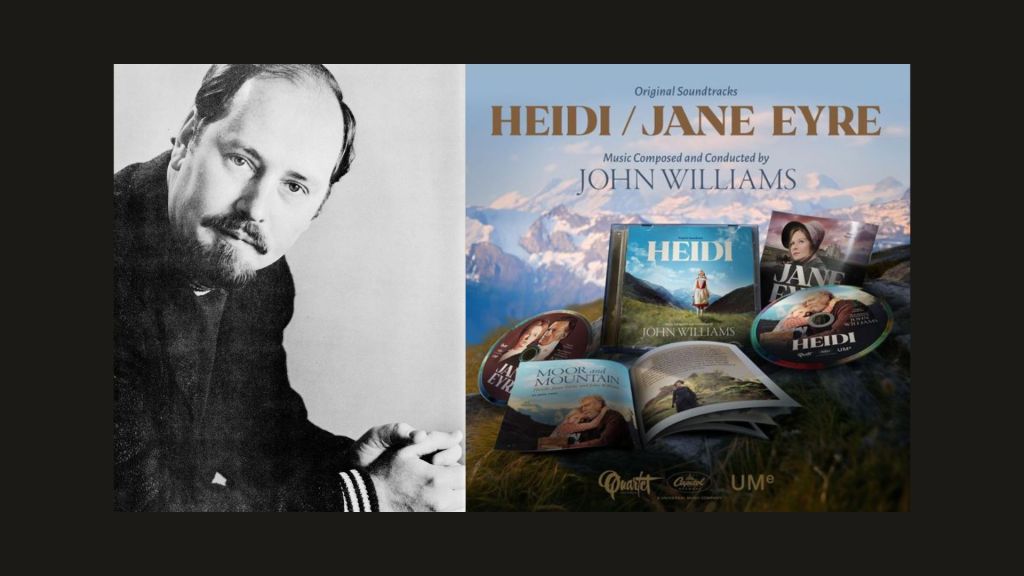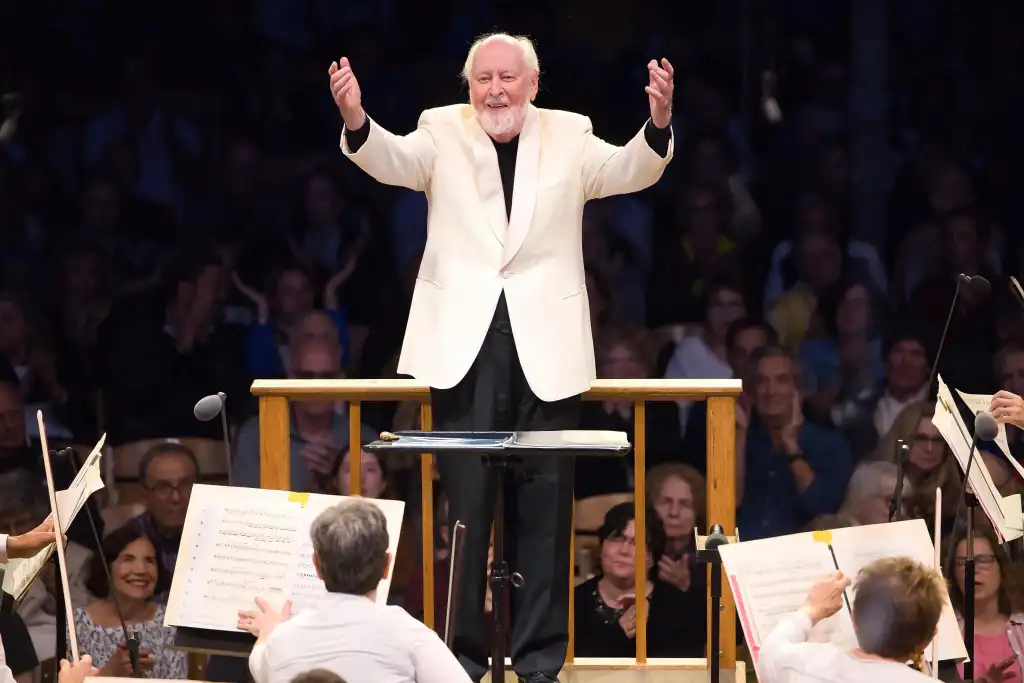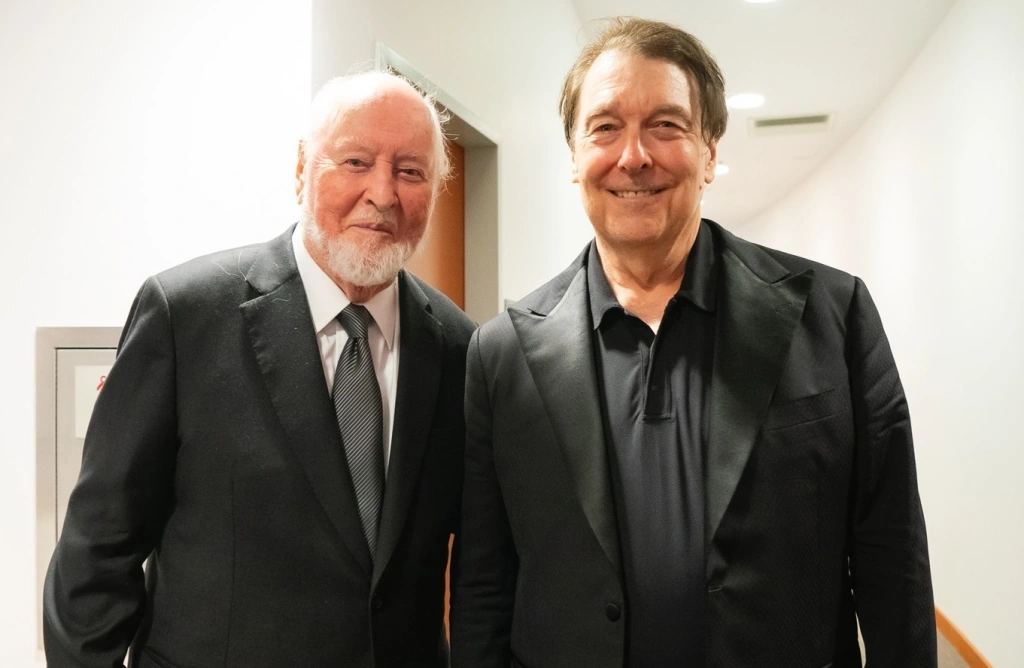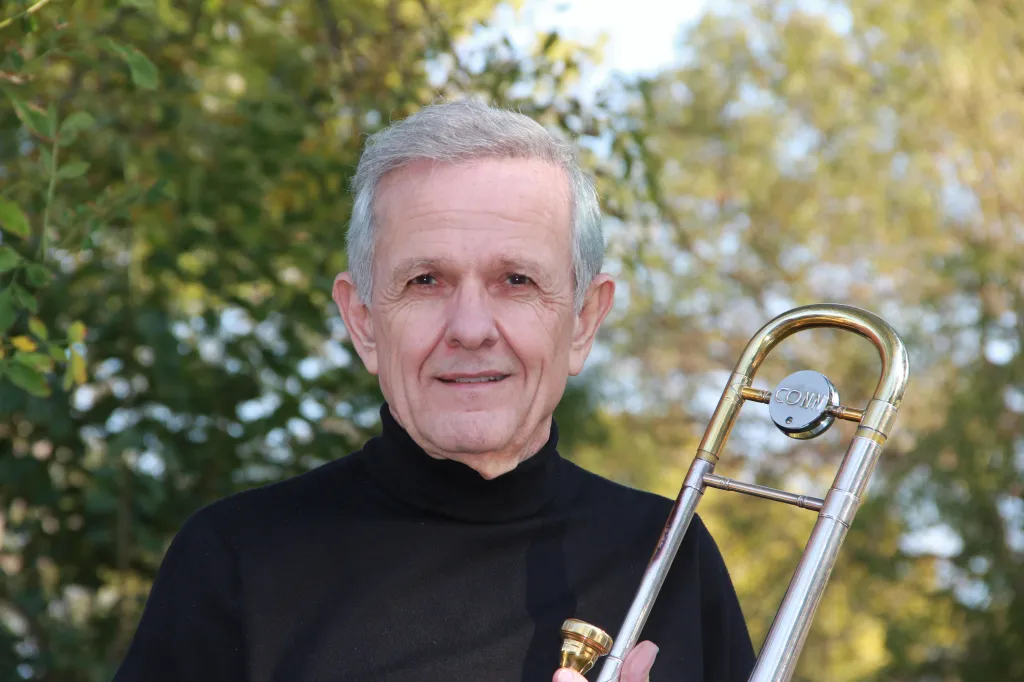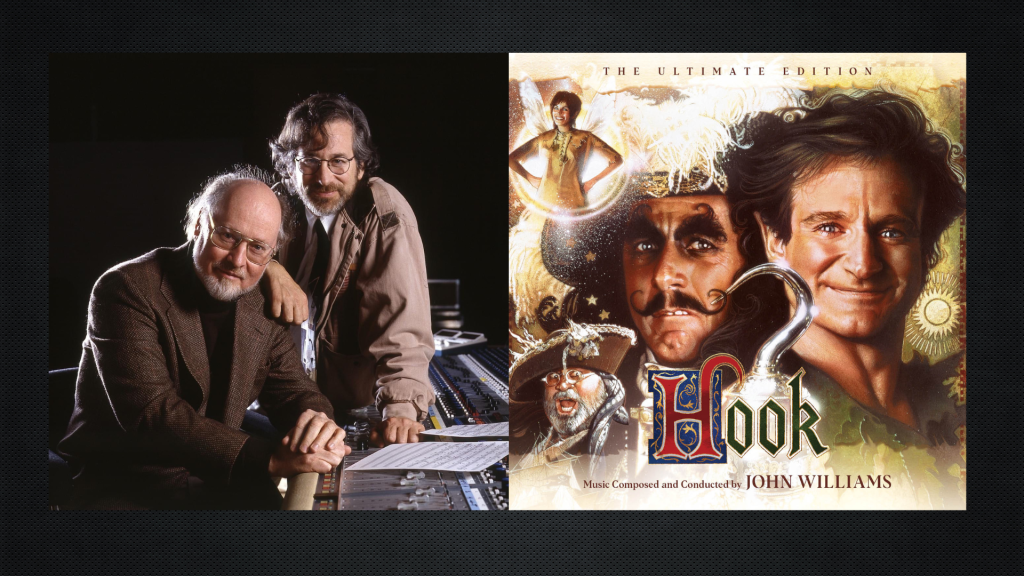2023 has been a very special time for fans of John Williams, as the Maestro’s music continued to be celebrated around the world throughout the whole year.
In January, Williams received his 53rd Academy Award nomination for the latest collaboration with Steven Spielberg, The Fabelmans, confirming his record as the most Oscar-nominated living person (and the second most-nominated of all time right after Walt Disney). 2023 also saw the release of a brand new film score composed by John Williams at the venerable age of 91: Indiana Jones and the Dial of Destiny, the fifth and final installment of the adventures of the character portrayed by Harrison Ford. For this score, Williams recently garnered two Grammy Award nominations for Best Soundtrack Album and also Best Instrumental Composition, namely for “Helena’s Theme,” the rapturously romantic theme written for the character played by Phoebe Waller-Bridge.
Hundreds of live concert performances of Williams’ music continued to be held in all four continents celebrating his incredible career. The Maestro himself appeared on the podium several times in the United States and also made a trip to Japan for two concerts with the esteemed Saito Kinen Orchestra, his first visit to the country since 1993. This year also brought new albums, compilations and a handful of special archival releases, with the lion’s share of these again handled by soundtrack label La-La Land Records, offering new expanded editions of Sabrina, The Lost World: Jurassic Park, and recently, the long-awaited 3-CD “Ultimate Edition” of Hook.

And right before the calendar year reaches its conclusion, European-based soundtrack label Quartet Records announced a 2-CD set presenting new remastered editions of two early masterworks in John Williams’ filmography: Heidi and Jane Eyre, both newly restored, assembled, mastered and produced by Mike Matessino, featuring in-depth liner notes by film music expert John Takis and artwork by Jim Titus. Both scores were composed by Williams for two made-for-television films produced by Frederick H. Brogger for Omnibus Productions and both directed by Academy Award-winning director Delbert Mann (with whom Williams already worked in 1967 on the comedy caper Fitzwilly starring Dick Van Dyke).

Heidi (1968) is adapted from the late 19th century novel of the same name written by Johanna Spyri and features Jennifer Edwards in the title role and a cast of venerable actors including Michael Redgrave, Maximilian Schell and Jean Simmons. It premiered on NBC on November 17, 1968, after a big promotional push. Shot on location in the Swiss Alps with beautiful Technicolor cinematography, the film features a gorgeous symphonic score by John Williams that is one of the very first attempts by the composer to write in a style that looks at the tradition of 19th century Late Romantic composers such as Richard Strauss and Gustav Mahler, a vernacular that the composer would then return to for some of his blockbuster scores of the late 1970s and early 1980s (Williams himself referred to Heidi, in a 1969 interview, as “a big, sort of Mahlerian score”). Featuring expansive lyrical writing with grand, operatic-like gestures and orchestrated for large symphony orchestra, Heidi offers many early “glimpses of magnificence” of the composer’s more famous future works for film; of particular note to enthusiasts of Williams’ music is the treatment of the French Horn section, which often mimics the “Alpenhorn call,” perfectly encapsulating the setting of the story and the beauty of the scenery. Scoring sessions were held in Hamburg (Germany), with an orchestra made of players from local symphonies and it marked the first time Williams recorded outside the US. For this film, the composer also penned one of his earliest most beautiful tunes, which originated actually as a song to be sung onscreen by the main character (“Heidi’s Song”) with lyrics provied by screenwriter Earl Hammer and his wife Jane; for the soundtrack album, lyricist Rod McKuen wrote a new set of lyrics and the song was retitled “A Place of My Own”. Williams’ score garnered a lot of attention after the premiere and was immediately lauded as one of the film’s strongest components; for this work, John Williams received the first Emmy Award of his career

For this new presentation, producer Mike Matessino and Quartet Records made every effort possible to find more material to expand the previous releases. The original ½″ four-track masters containing all of the cues selected for the 1968 Capitol Records story album was discovered and gave Matessino the chance to do a new mix of the music and a presentation of these cues in narrative order. The original narration record (featuring text read by Sir Michael Redgrave) was newly transferred by Universal Music Group and is presented after the musical score, thus giving John Williams’ fans a new chance to (re)discover this early masterwork of the composer.

Jane Eyre (1970) is a score that holds a special place in the hearts of true aficionados of John Williams’ music, and to the composer’s as well. The film is based on the eponymous novel by Charlotte Brontë which has been adapted several times for both the big and the small screen (the most famous one is perhaps the 1943 film directed by Robert Stevenson starring Orson Welles and Joan Fontaine, featuring a terrific score by Bernard Herrmann). Directed again by Delbert Mann and featuring Susannah York as Jane Eyre and George C. Scott as Edward Rochester, this made-for-television film is considered one of the most successful adaptations of Brontë’s novel, faithfully reproducing both the brooding 18th century atmosphere and the melancholic expansiveness of the English moors. The main characters’ inner feelings and the turmoil of their love story is mirrored in the scenery, but it’s augmented and enriched by the beautiful score composed by John Williams. For Jane Eyre, the composer was given the opportunity to write a score that evokes the Yorkshire countryside and the above-mentioned atmosphere of melancholy and longing that was often expressed in folk tunes of traditional English music. Williams composed the score of Jane Eyre in that specific vein, tapping into the lore of traditional English folk tunes like “Greensleaves” and the subsequent revival of that style brought by early 20th century British classical composers such as Frederick Delius, Percy Grainger and Ralph Vaughan Williams. The score contains one of Williams’ truly most inspired love themes, a long-lined melody that expresses a profound yearning feeling. The theme becomes the cornerstone upon which he constructs the musical narrative of the film, which also contains themes and motifs representing the locale (the brooding Thornfield Hall, the austere Lowood Institution School) and the various characters (the exquisite theme for clergyman St. John Rivers). Williams’ score carries most of the weight of the drama on its shoulders, expressing words unspoken and sights unseen. The project also gave Williams the chance to develop and expand some of the main ideas in the score into concert-like arrangements written specifically for the soundtrack album, including an exciting scherzo (“To Thornfield”) and an inspired symphonic development of the St. John Rivers’ theme (“Restoration”). The recording sessions for the film and also for album cues were held at Anvil Studios in Denham and engineered by Eric Tomlinson, featuring impeccable performances by London-based musicians including former London Symphony Orchestra members such as flautist Peter Lloyd, who is often spotlighted with some lovely writing for flute). This setting would later become very familiar for Williams, as it would return for such projects as Star Wars, Superman, Dracula and The Empire Strikes Back. The artistic success of Jane Eyre was finally sealed with the winning of Williams’ second Emmy Award of his career.

John Williams has publicly mentioned Jane Eyre several times throughout the years as one of his own personal favourite scores, a project that gave him the chance to express himself with a language he feels very close to, i.e. the English folk vernacular. Another testament of this affinity was revealed when Williams was being appointed music director of the Boston Pops in 1980: one of the very first thing he did was going back to the score of Jane Eyre and prepare a 3-movement concert suite which premiered during his debut concert season and in which he furtherly expanded some of the material he arranged for the soundtrack album, thus giving the music a new life in the concert hall. Williams has conducted the suite several times over the decades, including performances with the Chicago Symphony Orchestra and the New York Philharmonic.
“I think that Jane Eyre is very close to my musical heart. I enjoy performing it with orchestras as it is melodic in a very colorful and atmospheric way. If it’s within acceptable taste to say that one’s heart lies with one’s own music, then I can say that something of my heart does lie with the music from Jane Eyre.”
John Williams
For this new soundtrack release by Quartet Records, a new high-resolution transfer of the 1971 ¼″ stereo album master was provided by Universal Music Group. The original Capitol soundtrack album is presented here in fully remastered form by Mike Matessino, followed by four tracks of additional material, including a short segment of source music that is heard in the film but was not on the album. The other three tracks are alternate performances of three selections recorded for the album, “To Thornfield,” “Restoration” and the “Love Theme.” This material was sourced from two ½″ 3-track tapes that were discovered at Twentieth Century Fox in early 2019. While no additional score cues could be located, the recovery of any new material from this enduring and highly regarded John Williams work is most welcome.


In this new podcast conversation, soundtrack producer Mike Matessino and film music writer John Takis talk the history of these two early landmark John Williams’ scores, offering insights and reflections on the special quality and the timelessness of both scores, how they sits in the Williams’ canon and chronicling the laborious restoration process both recordings went through for this new spectacular release, another one that cannot be missed in the CD collection of any true John Williams’ admirer.
Special Thanks to José Benitez and Jason LeBlanc


HEIDI and JANE EYRE (2-CD)
Revised, Remastered and Slightly Expanded Scores
Music Composed and Conducted by John Williams
Produced, Restored and Mastered by Mike Matessino
Liner notes by John Takis
Artwork and Design by Jim Titus
Limited edition of 2500 units
Disc 1. HEIDI
Original Motion Picture Score
- Overture (Theme From ‘Heidi’) 2:21
- Arrival In Dörfli 3:12
- To The Alm 2:00
- Goat’s Milk 1:36
- At The Church :57
- Meditation Rock 2:20
- Dinner Table :47
- Stealing Rolls 1:10
- The Bedroom 1:55
- Library Talk 1:24
- Return To Dörfli 2:56
- Montage 1:34
- Waiting With Grandfather 1:35
- Separation 3:28
- The Farewell 3:52
- Klara Walks 3:51
Total Score Presentation: 35:27
1968 Original Soundtrack With Dialogue and Narration
- Main Title And Overture 2:21 (John Williams and Orchestra)
- The Old Man And The Child 2:49 (Sir Michael Redgrave, Jennifer Edwards)
- A Place Of My Own 3:35 (Sir Michael Redgrave, Jennifer Edwards)
- The Alm 3:39 (Jennifer Edwards)
- The Sleeping Child 2:22 (Sir Michael Redgrave)
- Meditation 2:25 (Sir Michael Redgrave, Jennifer Edwards)
- A Place Of My Own (Heidi’s Theme) 2:41 (Carri Chase, Vocal)
- Shadows 3:51 (Sir Michael Redgrave)
- Reflections 4:16 (Jennifer Edwards)
- A New Dimension 1:56 (Sir Michael Redgrave, Jennifer Edwards)
- The Nature Of Things 2:25 (Sir Michael Redgrave)
- Love Theme From ‘Heidi’ 2:54 (John Williams and Orchestra)
- The Miracle 2:55 (Sir Michael Redgrave)
- Finale And End Title 1:05 (Sir Michael Redgrave)
Total Soundtrack Album: 39:20
Disc 2. JANE EYRE
Original Soundtrack Album
- The Love Theme From ‘Jane Eyre’ 3:17
- Overture (Main Title) 3:57
- Lowood 2:28
- To Thornfield 1:53
- Festivity At Thornfield 2:11
- Grace Poole And Mason’s Arrival 3:03
- Meeting 3:09
- Thwarted Wedding 2:40
- Across The Moors 2:39
- Restoration 3:58
- Reunion (End Title) 4:25
Total Soundtrack Album: 34:06
Additional Music
- More Festivity :44
- To Thornfield (Alternate) 1:54
- Restoration (Alternate) 3:56
- The Love Theme From ‘Jane Eyre’ (Alternate) 3:19
Total Additional Music: 10:02
Available at QuartetRecords.com
